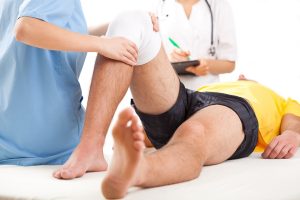Sports medicine is a specialized field focused on preventing, diagnosing, and treating injuries related to physical activity and sports. A vital component of sports medicine is orthopedics, the branch of medicine that deals with the musculoskeletal system — including bones, joints, muscles, ligaments, and tendons.
In this article, we explore the crucial role orthopedics plays in sports injury prevention and rehabilitation, helping athletes stay active, recover fully, and perform at their best.
Understanding Orthopedics in Sports Medicine
Orthopedic specialists are experts in managing injuries that affect bones, joints, muscles, and connective tissues — all common in sports. These injuries range from fractures and sprains to ligament tears and overuse conditions such as tendinitis.
Orthopedists use a combination of medical knowledge, advanced diagnostic tools, surgical and non-surgical treatments, and rehabilitation techniques to support athletes at all levels.
How Orthopedics Helps in Sports Injury Prevention
1. Comprehensive Injury Risk Assessment
Orthopedists evaluate athletes’ biomechanics, muscle strength, flexibility, and joint stability to identify potential injury risks. Understanding these factors allows for targeted preventive strategies that reduce the likelihood of injury.
2. Customized Training and Conditioning Programs
Working with trainers and physical therapists, orthopedic doctors help design conditioning programs that strengthen muscles and improve flexibility, balance, and coordination. These programs enhance athletic performance while protecting vulnerable areas.
3. Proper Equipment and Technique Guidance
Orthopedics experts advise on correct sports techniques and the use of protective gear like braces or supports to minimize injury risks during high-impact activities.
Orthopedic Role in Sports Injury Diagnosis
Early and accurate diagnosis is critical for effective treatment. Orthopedists utilize state-of-the-art imaging technologies such as MRI, X-rays, and ultrasound to precisely identify the extent and nature of injuries.
Prompt diagnosis prevents further damage and guides optimal treatment choices.
Orthopedic Approaches to Sports Injury Rehabilitation
1. Non-Surgical Treatments
Many sports injuries can be managed without surgery using methods like rest, physical therapy, medication, and injections. Orthopedists tailor non-surgical plans to reduce pain, restore function, and promote healing.
2. Surgical Interventions
When necessary, orthopedic surgeons perform minimally invasive or open surgeries to repair damaged ligaments, tendons, or fractures. Advances in arthroscopic surgery have reduced recovery times and improved outcomes.
3. Rehabilitation Programs
Orthopedics involves comprehensive rehabilitation plans that focus on regaining strength, mobility, and function. Physical therapy is crucial in helping athletes recover safely and return to their sport.
4. Return-to-Play Decisions
Orthopedic specialists monitor recovery progress and determine the right timing for an athlete’s safe return to play. This helps prevent re-injury and ensures long-term musculoskeletal health.
Benefits of Orthopedic Care in Sports Medicine
- Expert injury prevention strategies tailored to individual athletes
- Accurate diagnosis leading to effective treatment
- Access to cutting-edge surgical and non-surgical options
- Comprehensive rehabilitation for full recovery
- Guidance for safe return to sport and sustained athletic performance
When to Consult an Orthopedic Specialist
If you experience persistent pain, swelling, decreased mobility, or have suffered a sports injury, consult an orthopedic specialist promptly. Early intervention improves outcomes and helps you avoid chronic problems.
Conclusion: Orthopedics – Essential for Athletic Health and Longevity
Orthopedics is a cornerstone of sports medicine, providing the expertise necessary to prevent injuries, diagnose issues early, and rehabilitate athletes back to peak condition. Whether you’re a weekend warrior or a professional athlete, orthopedic care ensures your musculoskeletal system stays strong and resilient.
By partnering with orthopedic specialists, athletes can enjoy safer training, quicker recovery, and a longer, healthier sports career.

